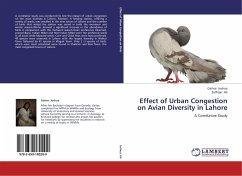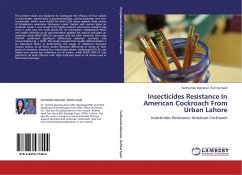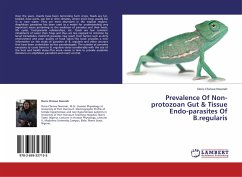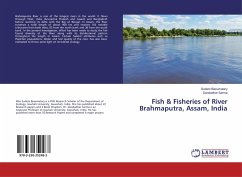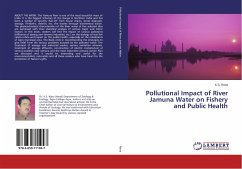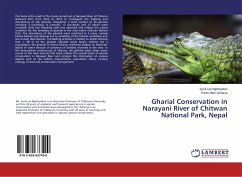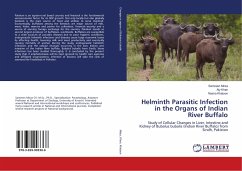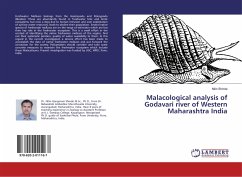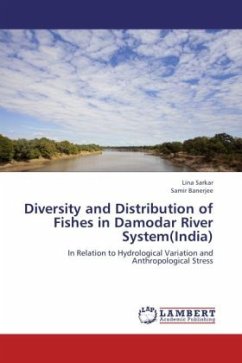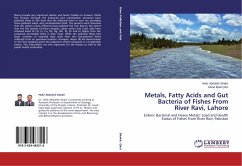
Metals, Fatty Acids and Gut Bacteria of Fishes From River Ravi, Lahore
Enteric Bacterial and Heavy Metals' Load and Health Status of Fishes From River Ravi, Pakistan
Versandkostenfrei!
Versandfertig in 6-10 Tagen
65,99 €
inkl. MwSt.

PAYBACK Punkte
33 °P sammeln!
Rivers provide very important abiotic and biotic facilities to humans. While the humans through the industrial and urbanization processes have polluted them to the level that the effected rivers in turn are providing them polluted water and contaminated food. The present work describes that the Lahore urban effluents have polluted the river Ravi to the extent that the fish species Cirrhinus mrigala, Labeo rohita and Catla catla have attained levels of Cd, Cr, Cu, Pb, Hg, Mn, Ni, Zn and Fe higher than the proposed permissible limits in their meat. While the polluted fishes had lesser contents o...
Rivers provide very important abiotic and biotic facilities to humans. While the humans through the industrial and urbanization processes have polluted them to the level that the effected rivers in turn are providing them polluted water and contaminated food. The present work describes that the Lahore urban effluents have polluted the river Ravi to the extent that the fish species Cirrhinus mrigala, Labeo rohita and Catla catla have attained levels of Cd, Cr, Cu, Pb, Hg, Mn, Ni, Zn and Fe higher than the proposed permissible limits in their meat. While the polluted fishes had lesser contents of essential fatty acids than the non-polluted fishes collected from an upstream location. However, about 90 km downstream to the first sampling point the pollutants effects mitigated to considerable extent. The information are very important for the masses as well as the public health authorities.



